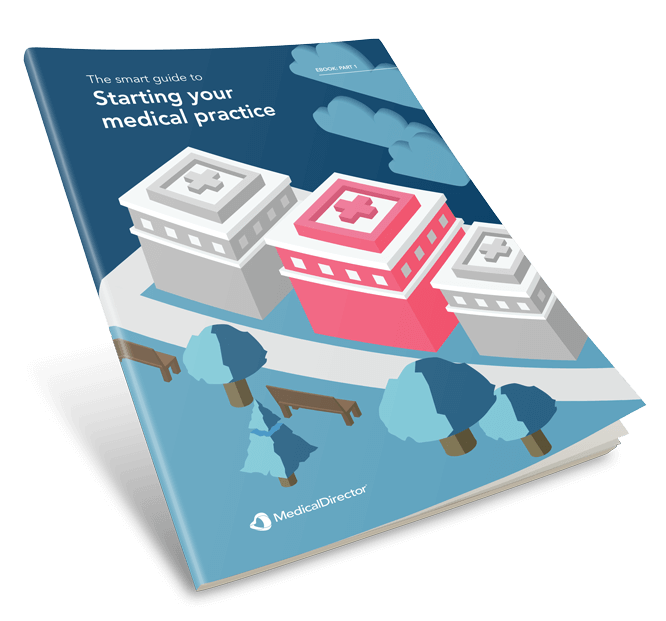Starting a medical clinic: 5 common business plan mistakes to avoid
A strategic approach to your business plan can ensure your medical clinic is not only up and running smoothly, but continues to grow and achieve optimum patient outcomes. Avoid these common pitfalls and you’ll be on your way to starting a medical clinic primed for success.
In this article, you’ll discover more about these five business plan mistakes (so you don’t make them yourself):
- Working with an ill-determined business structure can hinder your practice growth and your ability to obtain finance.
- By starting too early, you could miss steps in the process or valuable opportunities.
- Choosing finance too quickly might limit your practice in the early stages or as you grow.
- Failing to look ahead could mean your practice is not as agile or sustainable in the future.
- Over-complicating your business plan can slow you down in the long run as your practice evolves.
Here’s what to avoid when starting a medical clinic
1. Don’t: Use an ill-determined business structure
When starting a medical clinic, your plan needs to evaluate your business structure, staffing needs, local and regional competitors, as well as the short-term, mid, and long-term goals for your practice growth.
If the answers to these are not clear from the outset, you won’t be able to communicate your plan effectively to staff and stakeholders such as banks and investors. The latter could significantly impact your ability to obtain finance, or the finance of your choice.
Instead: Do your research.
Read up on tips and advice from those who have been there before (our free checklist is a great place to start). If you know others who have started a clinic, chat to them. Otherwise, we can set up a conversation with an expert practice consultant for you.
2. Don’t: Skimp on the planning
Starting a practice takes time and patience. Don’t be so eager to take the leap to start out on your own without ensuring you plan well ahead. Whether you’re starting a medical clinic from scratch or restructuring your existing practice, any planning takes time.
Failing to develop your plan early enough could mean you miss valuable steps in evaluating each part of your practice in the detail and care it needs, giving rise to potential missed opportunities.
Instead: Take your time.
Things will take longer than you think. And even when staff, stakeholders, and finances look promising, unforeseen delays do happen. There’s certainly nothing you can do to speed up administrative processes like credentials and licensing.
3. Don’t: Decide on finance too quickly
Most practices require a financial structure and a loan from a bank or financial institution. Failing to shop around for the right finance option can limit your options both at the start, and in the future, as the practice grows. Try to examine at least three different options in terms of loan structures, interest rates, fees, and terms and conditions relevant to securing the fund your practice needs.
Instead: Shop around and compare.
Your future self with thank you for taking the time to compare options. Don’t get locked into an arrangement you’re stuck with, that doesn’t suit the needs of your practice.
4. Don’t: Fail to future-proof your clinic
In the early stages of a practice, everything you choose to spend money on is an investment. Making the right decisions to future-proof your practice can have a huge impact as you evolve to adapt to today’s digital and data-enabled health ecosystem.
Before installing the latest equipment or software, do a cost-benefit analysis and see what solution can really give you true value – or help generate efficiencies and cost savings to help drive additional revenue.
For instance, with set up in as little as two weeks, Helix, a cloud-based practice management software solution from MedicalDirector, allowed We Care Medical Centre to work with an easy-to-use, flexible and mobile solution from the very start. Helix, a cloud-based practice management software solution from MedicalDirector, was set up in just two weeks. It has since given the team more time to focus on growing the practice and delivering better patient care.
Instead: Think ahead.
While it’s easy to get swept up by the momentum of getting started, it pays to sense-check your decisions. Remember, you’re not just making decisions for now, but you want to make sure to future-proof your practice as best you can.
5. Don’t: Over-complicate your plan
The best business plans are simple, agile and offer scope for scalability. As a start, you need to consider as a foundational exercise:
- How many patients you expect to visit your clinic each week
- Whether you will need any referrals
- How you will target new patients
- The patient demographics in your region
- Setting your fees and charges
- Your projected weekly income.
Instead: Get advice.
You don’t need to do this step alone. Get as much professional advice as you need from the appropriate medical networks and associations in the early days. This will ensure your plan is well-defined, transparent and aligned with your ultimate vision for your new practice.
To find out more, download our free ebook: ‘The Smart Guide to Starting a Medical Practice.’
Chat to an expert
Ready to start a practice? Chat to an expert practice consultant about your needs today.










